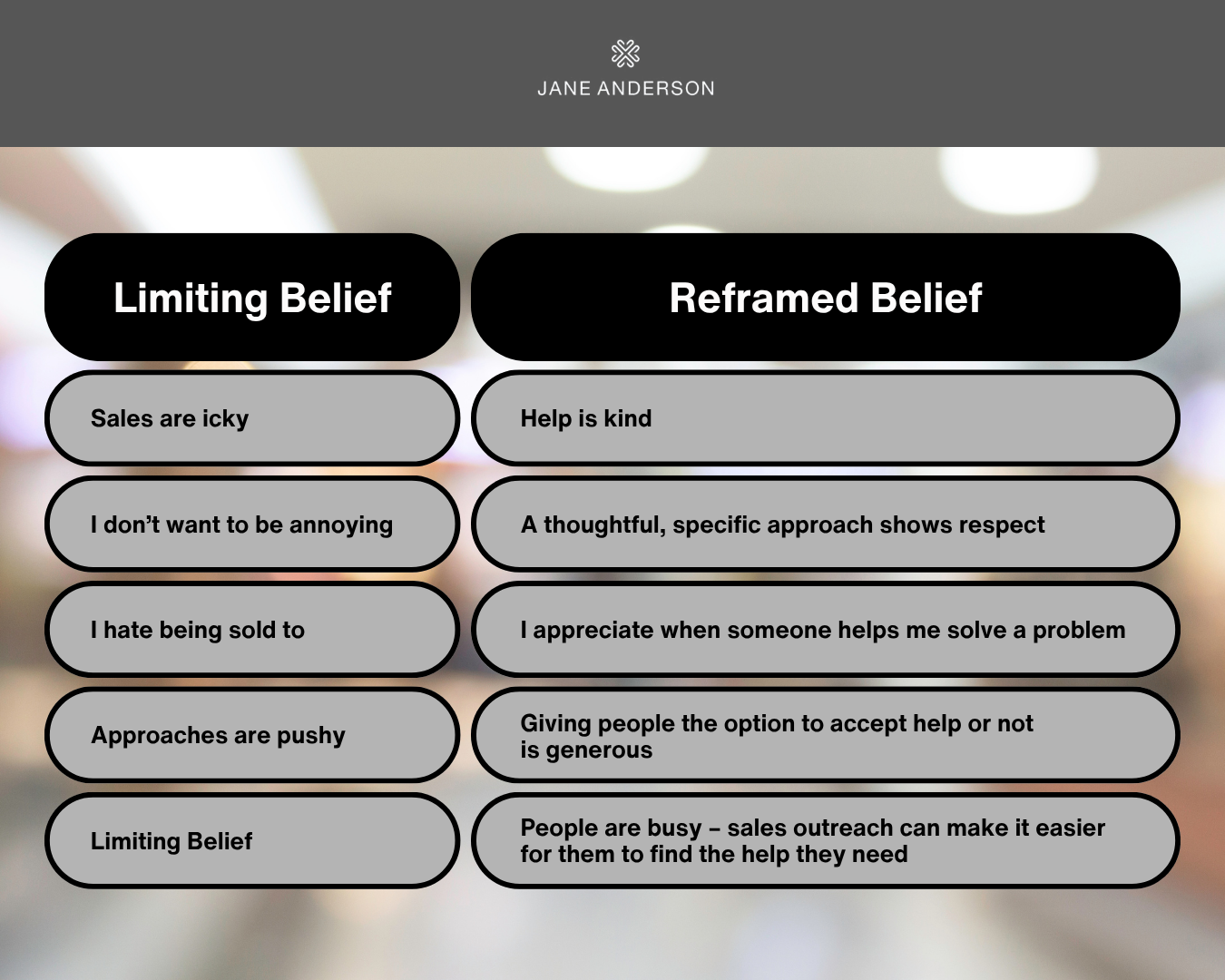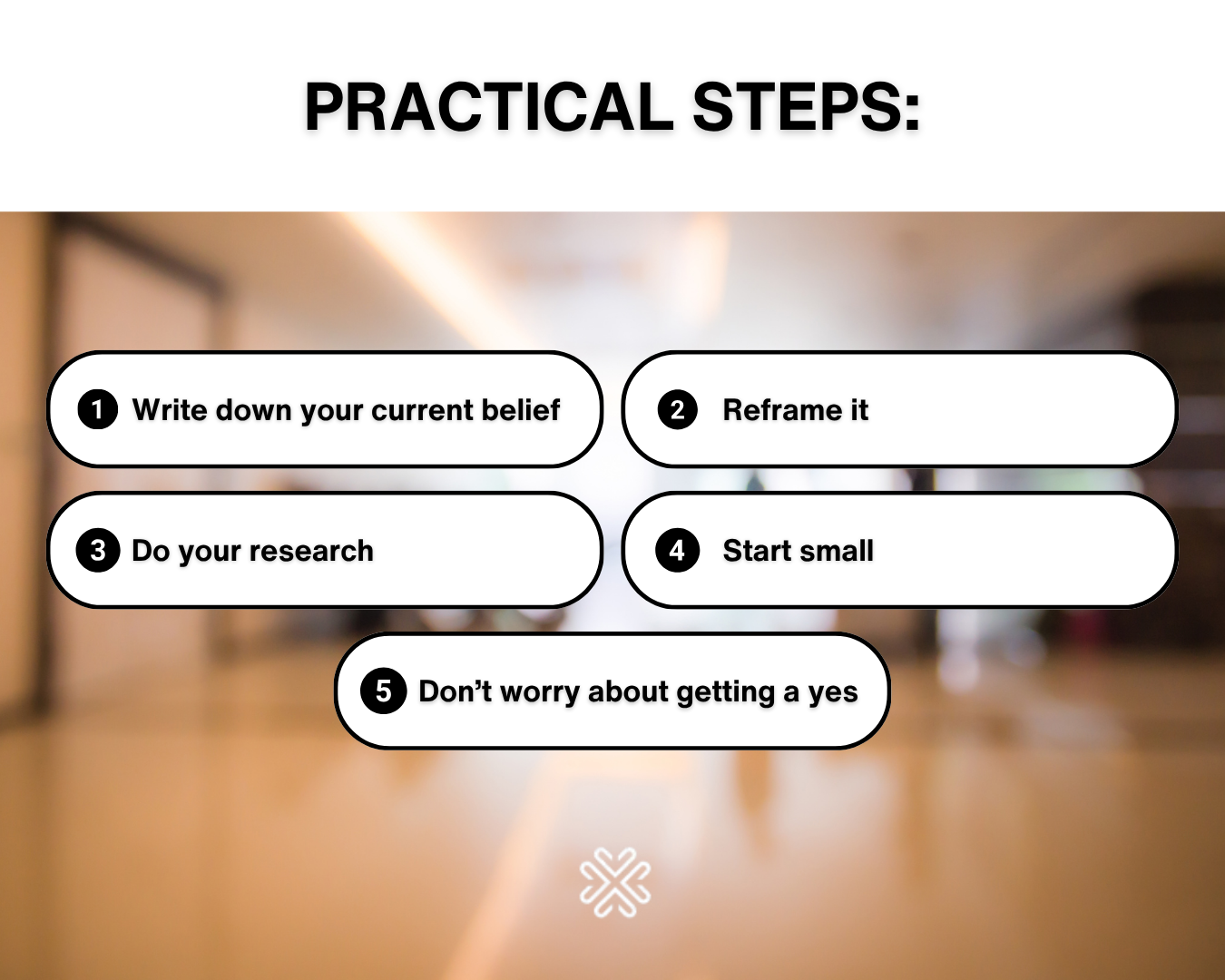What to do if you’re scared of outreach as a consultant
Article summary:
Many consultants fear outreach, approaches or prospecting (whatever you want to call it) because they feel pushy or ‘icky’. But when you reframe them as helping, not selling, outreach become an essential (and even enjoyable) part of your consulting sales and overall business growth.
If you have a business – whether that’s an advisory or consulting practice or a small business – selling is part of the package, and if you want to sell, you can’t avoid outreach. You can have the best offer in the universe – something that will absolutely change the game for your clients. But unless you’re reaching out to people, you’ll just stall.
Despite its importance, many consultants resist proactive outreachs in sales. I often hear clients say things like:
‘I don’t want to be annoying.’
‘I don’t like being sold to.’
‘I hate it when people do it to me.’
‘It just feels icky.’
I understand that completely. I don’t like selling that feels annoying or pushy or icky either. But selling doesn’t have to be like that. And if you’re feeling like that about your own selling, it’s not the outreach that is the problem – it’s what you believe about them.
Why we avoid approaches in consulting sales
This problem came up with one of my coaching clients Rebecca, not too long ago. I’d been checking her sales data – her sales outreach, meetings and conversion rates – and I realised that she wasn’t doing any outreach at all. I sent her quick email asking, ‘How are your approaches going? Do you need help?’ But the email went unanswered.
So in our coaching session I asked her directly, and it didn’t take her long to admit that she just didn’t want to do it.
She used all the reasons we talked about already. ‘It feels icky. I don’t want to be annoying. I hate being sold to.’ But then she immediately followed it up with, ‘What I really want to do is podcasts!
She went on to explain that she’d just bought a program that was designed to help her get podcast bookings. And it wasn’t cheap. When I asked her how she found it, she said that the salesperson from the company had reached out to her directly.
They’d looked at her website, saw what she was working on and then reached out to her with specific feedback about what she was doing well and where the gaps were. Then they simply asked, ‘Do you want help? If so, we’d love to support you. If not, that’s OK too.’ (In this case, they suggested that those gaps could be filled through being a guest on a podcast.)
So she bought the program.
‘Hang on a second,’ I said. ‘You just told me you hate being approached. But you bought from someone who approached you. Why? What did they do that worked?’
She answered, ‘It didn’t feel icky. It was warm, specific and friendly. It felt helpful.’
That was a lightbulb moment for Rebecca, a leadership coach based in Adelaide. She realised that the issue wasn’t the approaches themselves, it was her assumption about what approaches in consulting sales had to be and how they had to feel. She hated one version of selling, but she loved another. She loved the kind that was warm, specific and came from a desire to help.
Reframing our limiting beliefs
Our limiting beliefs about approaches are like the legs of a table. The big belief sits on top. For many people this is ‘sales are icky’. The legs underneath are all the little stories that support that big belief. So these might be, ‘it’s annoying,’ ‘it’s pushy,’ ‘nobody likes it,’ or ‘people aren’t going to like me when I try to sell to them.’
The good news is that if you knock the legs out, then the entire table will collapse. And in this case, that’s a good thing. Because we need to build a new table with a new big belief.
Here’s how to reframe limiting beliefs about approaches
This is the reframing we need. When you see outreach as helping rather than pushing, you stop feeling like it’s icky or uncomfortable. It’s simply offering help in a way that’s tailored and to which the person can easily say yes or no to. And that can even feel joyful!
Why value based selling matters
When we make approaches with an eye to providing real value to our clients, research shows that there will be real positive outcomes, including:
Higher conversion rates – when the customer clearly sees the business benefit, they’re more likely to buy.
Ability to sell more profitable offerings – when you aren’t just competing on price, you can differentiate through value and show why even a higher-priced solution might make sense.
Improved market position – companies that use value-based selling win more often against their competitors, even when they aren’t the cheapest on the market.
Stronger customer relationships – because value-based selling requires transparency and understanding, it supports long-term and loyal client relationships.
Reduced need for high-pressure tactics – when the value story is clear, tailored and personal, you don’t need heavy pushing or aggressive closings.
Designing your own version of sales outreach
When it comes to our own outreach in sales, design a version that feels good to you and offers real value to your potential clients. Ask yourself, ‘What would your approaches look like (and feel like) if you were looking to support and help?’
This is the key question. Because approaches don’t have to meet a script and they certainly don’t have to feel pushy. Instead, focus on being warm, personal and offering real help to real problems the person may have.
If you’re still struggling, remember that we all buy from outreach – whether that’s in person or ads flowing through our social media feed. Think about an approach you have, or would, respond to. What did that look like? Feel like? How can you tailor your own approaches to feel and look like that?
I would suggest creating approaches that are:
Personalised – do your homework and offer real solutions to real problems with an ROI (Return On Investment).
Specific – mention something the other person is doing well and you’re genuinely impressed.
Kind – the tone needs to be friendly, warm and respectful.
Light – come with no expectation, detachment and a mindset of it’s okay with a no.
When they feel like this, suddenly approaches move from being icky to being of service.
Practical steps
Write down your current belief. Identify what’s holding you back (for example, ‘I don’t’ want to annoy people.’).
Reframe it. Replace that belief with one that is service-oriented (for example, ‘Reaching out makes it easier for people to find the help they need and they don’t have to suffer any longer.’).
Do your research. How can your services help the people you’re approaching, who needs that help the most?
Start small. Send out a few approaches and see how people respond. You can adjust your approach as needed.
Don’t worry about getting a yes. Just worry about getting in touch to get started. The yes’s will come.
If you don’t reach out, someone else will
Remember, you’re not scared of outreach – at least not all of them. Just those that are pushy, impersonal and so feel icky. But warm, personal, respectful approaches that are rooted in service, are an integral part of your overall consulting sales strategy… and those aren’t scary at all!
I’d love to hear your thoughts…


